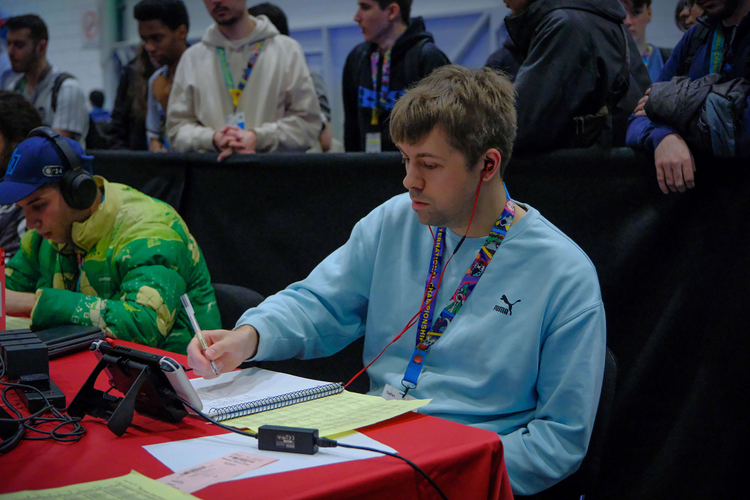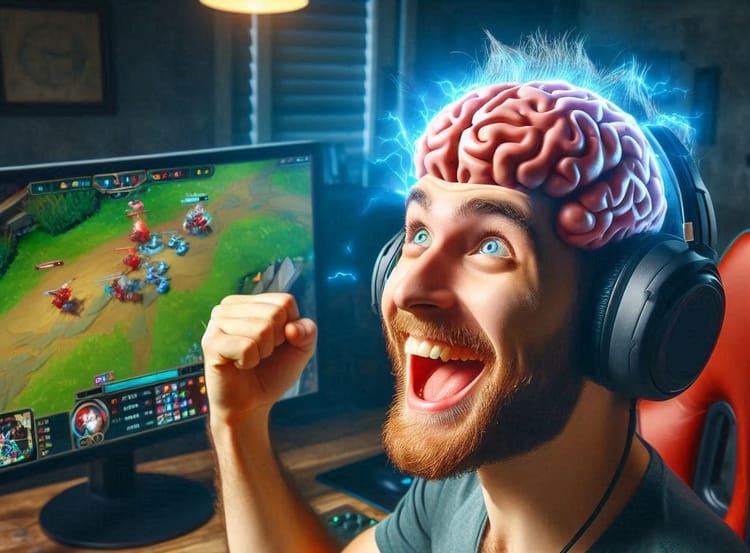Playing as a Job – Career Development of Professional Esports Players (1)
We discuss the job career of video game esports players. Specifically, we look at the career stages they have to pass through.
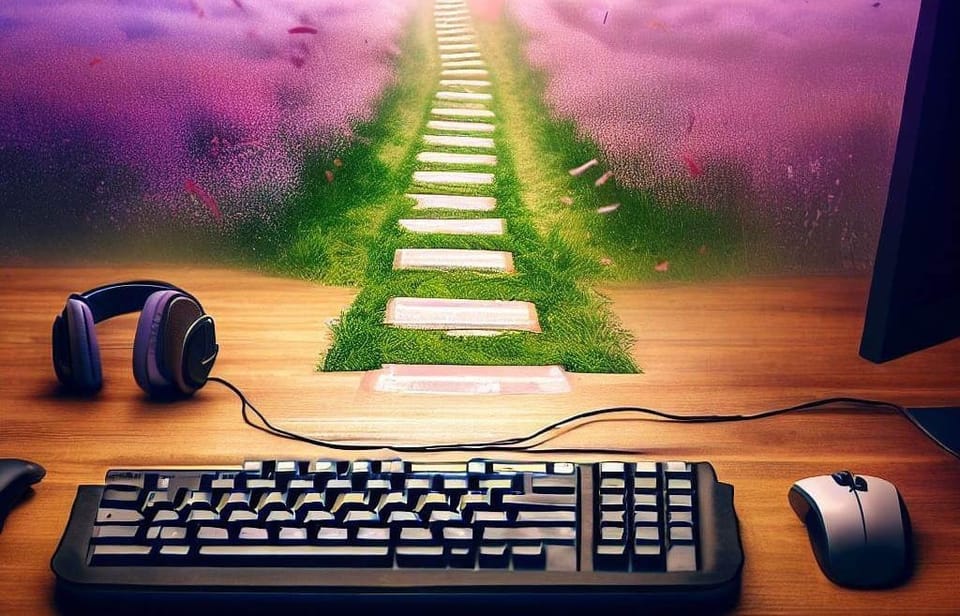
Hello guys.
Over the past few decades, playing video games has become a central aspect of our lives. This interest has led to professionalization in various areas of the gaming industry. For young people, pursuing a career in the industry is a realistic option. The probably most desired career is that of becoming a professional Esports player. You get paid very good money to play your favorite video game all day, compete in front of millions of people, travel the world, and have fans cheering you on. This week, let’s talk about a professional Esports player's career.
Over the past few decades, playing video games has become a central aspect of our lives. This interest has led to professionalization in various areas of the gaming industry. For young people, pursuing a career in the industry is a realistic option. The probably most desired career is that of becoming a professional Esports player. You get paid very good money to play your favorite video game all day, compete in front of millions of people, travel the world, and have fans cheering you on. This week, let’s talk about a professional Esports player's career.
🇧 The most basic Framework
When talking about the career of a progamer, the most high-up perspective is the one of career development. The purpose is to answer mainly two questions: One, how does the career of a progamer develop over time, and two, what characteristics does each stage have? Currently, there are three different models in the literature that highlight different aspects of the career of progamers but also overlap in various parts.
The most basic framework consists of four stages: initiation, development, mastery, and discontinuation. It is mainly borrowed from other sports and comes from Salo (2017).
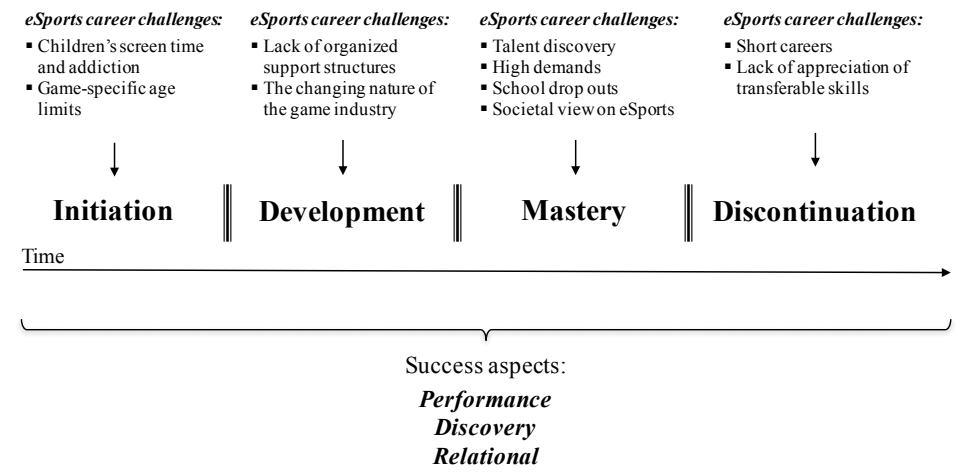
During the first stage, kids engage with computers, consoles, and games in general. Due to the low costs and widely available technology, children in developed countries have access to those resources. This is how probably most of us got in contact with games. In the development stage, they devote more time and effort to specific games or genres. The stage transition is not necessarily noticeable as players have an inner drive to develop their skills to improve in-game results.
Players can advance to the third (mastery) stage once they have reached
“[…] a high level of competence in a specific game and utilize it in competitive gaming.”
“Utilize it in competitive gaming” means playing against other people, mostly online or friends. To measure one's rank and monitor skill development, players use rankings or tournaments where they play against other players. In this phase, players satisfy their need to compete by using in-game rankings (ladder) or tournaments. This helps them figure out how good they are at their favorite game.
The last phase occurs when the player (intentionally or unintentionally) withdraws from Esports. Players either retire or switch to something else (inside or outside the industry). This stage is the discontinuation stage and marks the end of the players' career.
The framework also highlights career challenges and problems that may occur during a players' career. Those, and other factors that influence the career of players, is what we'll explore next week. 😉
🔎 A more nuanced Framework
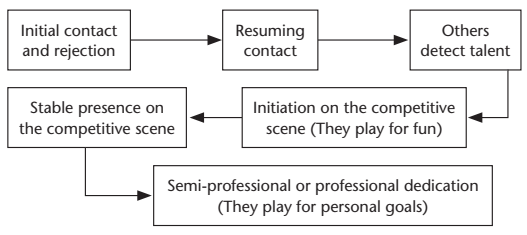
A more nuanced framework displaying the career development of an Esports player comes from Bonilla and his co-authors last year 2022. It shows how players progress from an initial contact with video games to becoming (semi-)professionals. Similar to Salo, players get into games – and later Esports – due to contact with family or friends. If they continue playing
“[…] little by little they acquire the necessary knowledge, until they realize that they have a certain talent and are good at it, especially mechanically […]”
As a result, players may begin to compete and gain experience within the competitive scene. At this point, they still play for fun, but that may slowly change as they progress in their career.
“There comes a time when you no longer pick a champion because you like it but because it is useful to the team.”
When a player reaches that stage, they can be considered a (semi-)professional player. They play to satisfy their personal goal instead of playing for fun.
It’s not about grinding games; it’s about dedicated work to improve performance.
Playing one additional game doesn’t teach you much anymore. It now is much more valuable to strategize, analyze other players and teams, and work on yourself, such as eating healthy, getting enough sleep, working out, getting support from physiologists, etc. In team-based games, e.g. Counter-Strike, players, team aspects such as cohesion or communication become much more important. You are still playing the game, but it is your job, that also comes with obligations.
🎮 The Korean StarCraft II Model
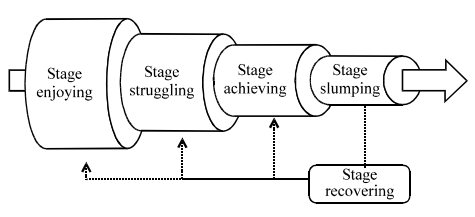
A third model, and I promise it is the last one, that concerns the career development in Esports is the one from Kim and Thomas from 2015. It focuses on StarCraft II and how Korean players progress over time. Similar to the others, in the first stage players are far from being professional. They play for fun, meet other players online, and may be involved in amateur guilds or clans – it is basically the same as that of general game users. In guilds or clans, they share information about the game and play together. This may further develop their skills.
In order to transition to the struggling stage, players have to pass an examination. This automatically makes them professional team members. Once they're part of a professional team, they are required to learn basic skills, mainly from mentors, rather than individually specialized strategies. In single-player games, players
"[…] must compete with their teammates and receive acknowledgement from others in order to be afforded the opportunity to participate in an official match. […] Community members are no longer cooperative friends but competitors."
Once a player reaches that stage, learning and advancing are his primary tasks. In team-based games such as Counter-Strike, players, instead of competing against each other, tend to cooperate with and adjust to each other. Progressing as a team is the main goal.
“In this way, the behavior of the team could act as a collective instructor for the individual player.”
In StarCraft II (or single-player games in general), individual skill development is more important, and cooperation “has more of a mentoring character,” as more skilled players teach less advanced ones. There is a clear hierarchy where the top players cooperate to win (team) games in competitions, and lower-ranked players compete to become a high-ranked player within the team. Thanks to those players, coaches, and other team members, a portion of players shift to the achieving stage.
At this stage, a player's goal is to defeat other players in tournaments. It starts to feel like they are professional players. They also get more support from the team, mainly by the coach, to help them generate specific strategies to achieve better results. Strangely, the players they competed against in the struggling stage are now recognized as cooperators. Because they have reached a higher status, they experience less stress or anxiety and start enjoying playing the game again.
“However, players usually cannot maintain the achieving stage. Many of them fail to win the game continually. Because their skills and strategies were exposed to others through TV shows, their playing style cannot always keep them at the achieving stage. Other players are continually working to dethrone them.”
When you are competing at a high level over a long period of time, people get to learn from you. They can analyze your plays and find weaknesses. Only a fraction of players manage to “stay relevant.” The other players enter the slumping stage. Once they can't win most of their matches anymore, they get degraded. They now need to learn new skills and have to compete against teammates to earn back their once-had status. This stage is, therefore, similar to the struggling stage.
Some players may change their career path. Instead of trying to make it back into the achieving stage, they become a team coach, commentator, streamer, or pursue a non-gaming related career. For the majority of players, staying within the gaming industry makes the most sense. They have lots of experience and also a reputation that may help them find a job. This is very similar to other sports.
💡 Unless players went to college during their Esports career, it is hard for them to find similarly paying jobs outside the gaming industry. The reason is that the skills players acquire during their Esports career badly transfer into other industries. Work experience and the necessary skills haven’t developed, and they may very well be in their mid to late 20s or early 30s.
Pursuing a career as a professional Esports player is, in a sense, an all-in strategy. If people “chase” this dream over a long period of time, they forgo other career options. Once a player can't compete at the top level anymore or was average at best, he finds himself with limited pathways ahead of him. Games and glory await only a tiny fraction of players.
Thanks for the read. See next Sunday!
Christian 🙂
Join over 200+ (🤯) Gaming Science subscribers and become smarter every week.
"I love this type of content, thank you Chris."



